As a BetterHelp affiliate, we receive compensation from BetterHelp if you purchase products or services through the links provided
Perseverance and resilience are essential, especially in a world of challenges and uncertainties. These two traits can mean the difference between success and failure and help individuals navigate life’s inevitable ups and downs. By gaining a deeper understanding of perseverance and resilience, we can learn how to face adversity with courage and determination.
The key to developing resilience lies in recognizing its role in overcoming challenges and adopting a mindset focused on growth and positivity. Additionally, understanding how to nurture perseverance – often called “grit” – can empower people to push through obstacles and keep working towards their goals, even when the going gets tough. With the right tools and resources, anyone can strengthen these qualities and become more resilient.
Key Takeaways
- Perseverance and resilience are crucial for navigating life’s challenges and achieving success.
- A growth mindset and positive attitude can help build resilience and nurture perseverance.
- To develop these traits, individuals need appropriate support, resources, and strategies for coping with adversity.
 Understanding Perseverance and Resilience
Understanding Perseverance and Resilience
Resilience Defined
Resilience is a psychological trait that allows you to bounce back from adversity and overcome challenges in your life. You can cope with stress, difficulties, and setbacks while maintaining well-being. Some key aspects of resilience include:
- Flexibility: Adapting to new situations and finding ways to cope.
- Optimism: Maintaining a positive outlook and focusing on solutions.
- Emotional intelligence: Recognizing and managing your emotions and understanding those of others.
Key takeaway: Resilience helps you handle life’s ups and downs, staying strong and focused despite setbacks.
Perseverance Explained
On the other hand, perseverance is your ability to persist and stay determined in pursuing your goals despite obstacles or challenges. It’s about relentless efforts and showing unwavering commitment to your dreams. Some strategies to boost your perseverance include:
- Setting clear goals: Break down your goals into smaller, manageable steps that you can work toward incrementally.
- Developing a growth mindset: Embrace challenges, learn from your mistakes, and believe in your ability to improve and grow.
- Finding motivation: Identify your inner drive and use it as a source of strength and inspiration.
To summarize, perseverance is all about staying committed to your goals, no matter the hurdles you face.
Key takeaway: Perseverance enables you to push through obstacles and stay dedicated to achieving your dreams.
 Role of Perseverance and Resilience in Overcoming Challenges
Role of Perseverance and Resilience in Overcoming Challenges
Stories of Success
Everyone faces challenges, obstacles, and setbacks from time to time. What sets successful people apart is their ability to persevere and remain resilient. Successful individuals draw on their inner strength and keep moving forward, even in adversity. They recognize that challenges are inevitable and embrace them as opportunities for growth.
So, how do you bounce back from setbacks? Here are some strategies:
- Acknowledge your emotions: Feeling frustrated, disappointed, or angry when faced with challenges is okay. Give yourself time to process these emotions.
- Learn from your experience: Reflect on what went wrong and how you can avoid making the same mistakes in the future.
- Break challenges into smaller tasks: Instead of being overwhelmed by a massive obstacle, break it into smaller tasks that are easier to manage.
- Take action: Instead of dwelling on setbacks, take practical steps toward your goals. Each small victory will boost your confidence and motivate you to keep going.
Key takeaway: Perseverance and resilience are essential to overcoming challenges and achieving success.
Adapting to Change
Change often brings about new challenges and uncertainties. To adapt and thrive, you need to develop a strong sense of resilience. This allows you to face these challenges head-on without getting disheartened.
Here are some tips for adapting to change:
- Stay flexible: Develop an open mindset and embrace new ideas and opportunities instead of resisting them.
- Expand your skillset: Continuously learning and upgrading your skills will help you stay relevant and prepared for any change that comes your way.
- Take calculated risks: Embrace change by taking well-thought-out risks that put you in a better position for the future.
Remember that your persistence and willingness to adapt will pay off in the long run. Change can be difficult, but it’s also an opportunity for growth and improvement. So, when faced with change, don’t shy away from it – embrace it and let your resilience lead the way.
Key takeaway: Embrace change and adapt by being flexible, learning new skills, and taking calculated risks to overcome challenges and thrive.
 Building Resilience: The Journey
Building Resilience: The Journey
Importance of Mental Health
Your mental health plays a crucial role in your ability to develop resilience and bounce back from adversity. It’s essential to prioritize self-care and focus on reducing stress and anxiety. Here are some key strategies to maintain your mental health:
- Take breaks from work or other stressors to recharge.
- Engage in hobbies or interests that bring you joy and relaxation.
- Practice mindfulness through meditation, yoga, or other mind-body exercises.
- Get adequate sleep to give your mind and body time for rest and rejuvenation.
Key takeaway: Prioritizing mental health is the foundation for building resilience and the ability to bounce back when faced with challenges.
 The Role of Relationships
The Role of Relationships
Forming strong relationships and maintaining a support network are crucial for building resilience. Connections with others can provide encouragement, guidance, and a helpful perspective during difficult times. You can strengthen your relationships by:
- Communicating openly and honestly with friends, family, and colleagues.
- Expressing gratitude for the support and understanding you receive.
- Offering encouragement and assistance to those around you as they also work to build resilience.
- Joining groups or organizations where you can meet like-minded individuals who share similar goals and values.
Key takeaway: Building strong relationships and maintaining a support network are essential for increasing resiliency.
Formulate Purpose and Goals
Establishing a clear purpose and setting long-term goals provides a sense of direction and motivation that can help you build resilience. As you work towards these goals, keep in mind the following tips:
- Align your goals with your values and priorities.
- Break down long-term goals into smaller, more manageable milestones.
- Develop confidence in your abilities through continuous learning and skill-building.
- Be flexible and open to adapting your plans as circumstances change.
Key takeaway: Formulating purpose- and goal-driven plans can significantly contribute to building resilience, providing you with the motivation and direction needed to overcome adversity.
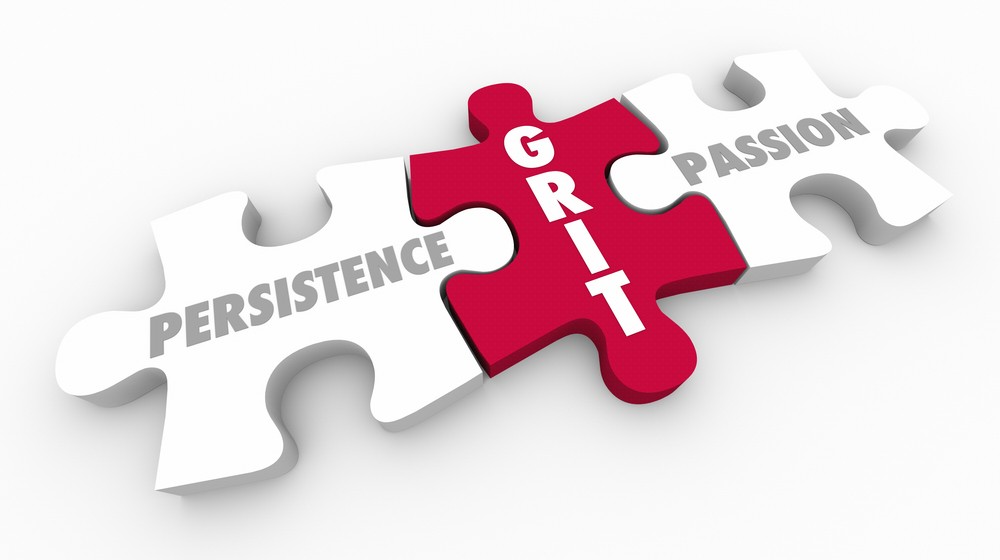
The Grit Factor: Developing Perseverance
The Power of Passion
Passion plays a key role in developing perseverance. When you’re excited and driven by an unshakable sense of purpose, it fuels your determination. So, what can you do to discover your passions?
- Reflect on what interests you deeply.
- Recognize your strengths and how they align with your interests.
- Evaluate if your goals align with your values.
Key takeaway: Cultivating a passion for your goals naturally boosts your perseverance.
Investing in Practice
Remember, practice makes perfect. Building grit requires a deliberate focus on consistent practice and improvement. Here are some strategies to help you invest in practice:
- Set achievable goals: Break down your long-term goals into smaller, manageable tasks.
- Track progress: Regularly measure how you’re advancing towards your goals.
- Embrace challenges: As you face struggles, use them as opportunities to learn and grow.
- Nurture conscientiousness: Discipline and attention to detail are important in honing your skills.
Key takeaway: Regular, deliberate practice helps develop the resilience needed for long-term success.
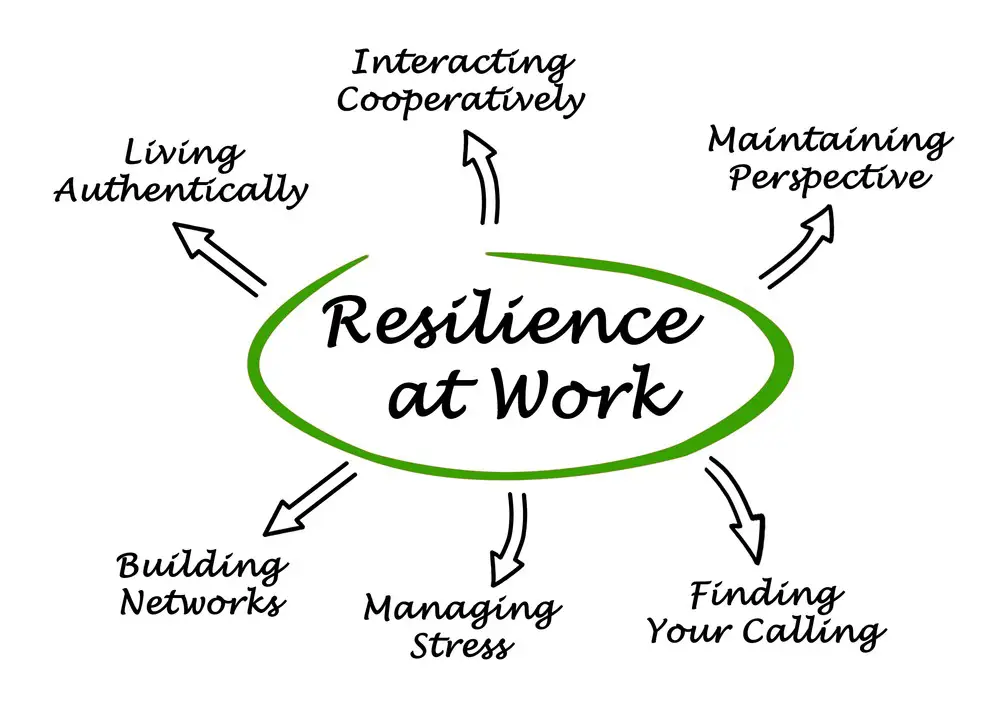
Resilience and Perseverance in Different Environments
Life throws various challenges at us, and facing them head-on is essential. This section will explore how resilience and perseverance are vital in different environments, such as the workplace, family dynamics, and traumatic experiences.
Workplace Scenarios
You may encounter stressors like tight deadlines, job loss, or conflicts with colleagues in the workplace. Here are some tips on building resilience and perseverance:
- Communicate openly with your team and superiors to express your concerns.
- Focus on your priorities and set realistic goals.
- Take breaks to recharge and manage stress effectively.
- Embrace change and adapt to new situations.
- Network with colleagues and mentors to build support systems.
Key takeaway: A resilient and persevering mindset in the workplace can help you cope with challenges and maintain productivity.
Family Dynamics
Powerful emotions and significant change often mark the family environment. Here’s how you can be resilient and persevere through various family situations:
- Maintain open and respectful communication with your family members.
- Accept that you cannot control others’ actions or reactions but can control your response.
- Seek out emotional support from friends, relatives, or support groups.
- Develop healthy coping mechanisms like exercise, mindfulness, or engaging in hobbies.
- Set boundaries and prioritize self-care to maintain balance.
Key takeaway: Resilience and perseverance in family dynamics enable you to navigate emotional challenges and maintain healthy relationships.
Traumatic Experiences
Traumatic events such as natural disasters, accidents, or loss can disrupt the natural flow of life. Resilience and perseverance are crucial for recovering from these occurrences:
- Accept and acknowledge your feelings during this difficult time.
- Create a daily routine to establish a sense of normalcy and stability.
- Set achievable goals and celebrate small victories.
- Seek professional help if the traumatic event has a lasting impact on your mental health.
- Stay connected to friends, family, and support networks to avoid isolation.
Key takeaway: Building resilience and perseverance in response to traumatic experiences can help you regain control of your life and move forward.

Support, Resources, and Strategies
Perseverance and resilience are crucial to navigating life’s challenges. You’ll need support, resources, and strategies to fall back on to build these traits. Here are some useful recommendations to guide you on your journey.
Build a network of supportive communities: Surround yourself with like-minded people striving to improve their perseverance and resilience. Search for these communities online or join local groups focused on personal development, mental health, or well-being.
Seek help from mental health professionals: Remember that asking for help is okay. A mental health professional can provide valuable insights and guidance to help you enhance your resilience. Reach out to therapists, life coaches, and counselors to support your emotional well-being.
- Cultivate strong relationships: Nurturing healthy and supportive relationships is important for personal growth. Prioritize spending time with friends, family, and colleagues who encourage your resilience and are there for you in times of need.
Some strategies to develop your perseverance and resilience might include:
- Establish realistic goals: Break down your long-term goals into manageable, achievable steps. Moving towards small, attainable targets helps maintain motivation and momentum.
- Practice gratitude: Keep a gratitude journal or reflect on what you appreciate. Focusing on the positives can make it easier to overcome setbacks.
- Take care of your physical health: Exercise regularly, maintain a balanced diet, and prioritize sleep. A healthy body promotes a healthy mind, equipping you with the energy to bounce back from challenges.
- Adopt a growth mindset: Believe in your ability to grow, learn, and adapt. Embrace challenges and view them as opportunities to develop new skills and insights.
Remember that perseverance and resilience are not innate when facing setbacks or obstacles. They are developed and perfected through practice and by utilizing the right support, resources, and strategies. So, keep pushing forward, and your efforts will undoubtedly yield positive results.
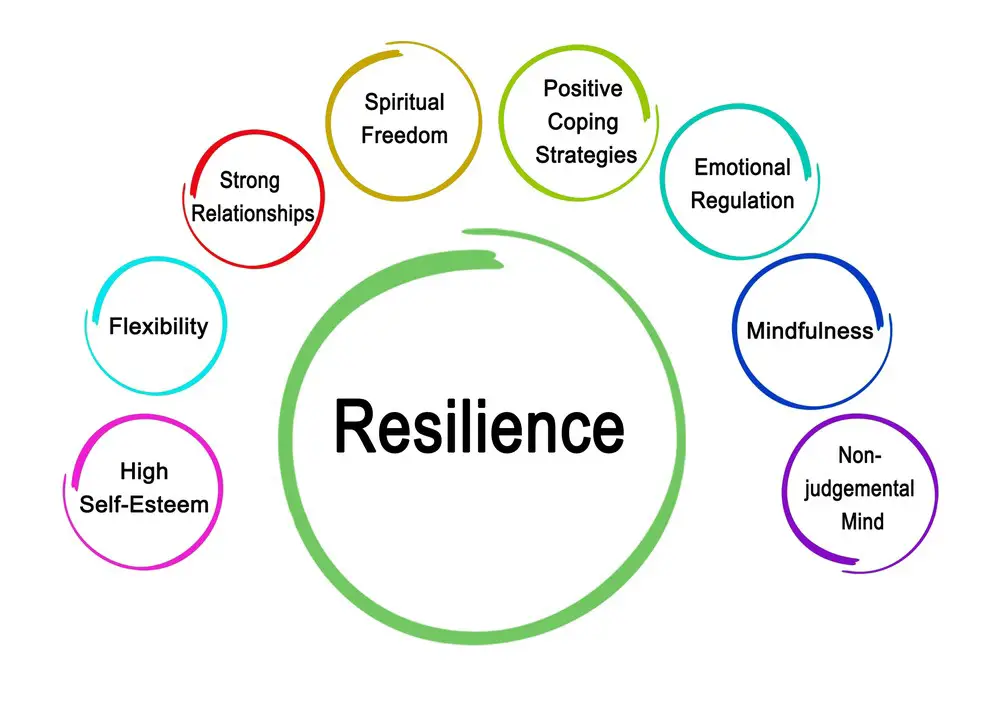
Influence of Mindset and Perspective
Regarding perseverance and resilience, your mindset and perspective play a crucial role in facing life’s challenges. Understanding how a growth mindset, fixed mindset, and optimism can shape your experiences is essential in overcoming obstacles and achieving your goals.
Growth Mindset is the belief that you can develop and improve your abilities over time. With this mindset, you can face challenges head-on, knowing that each challenge offers an opportunity to grow and learn. You’re more likely to see setbacks as temporary and make the necessary effort to bounce back stronger. Here are some strategies for fostering a growth mindset:
- Embrace challenges as learning opportunities.
- Celebrate small wins along the way.
- Learn from criticism and feedback.
- Practice self-compassion and avoid negative self-talk
Fixed Mindset, conversely, is the belief that your abilities are set in stone and cannot be changed. This mindset can hinder your progress, as you may avoid challenges, give up easily, or fear failure. To shift from a fixed mindset to a growth mindset, consider these tips:
- Adopt a curious and open-minded attitude
- Replace negative language like “I can’t” with “I can learn.”
- Give yourself permission to make mistakes and take risks
- Focus on your effort and progress, rather than outcomes
An optimistic approach to life can also enhance your perseverance and resilience. Optimism is maintaining a positive outlook or expecting the best in your situation. You can foster optimism by:
- Practicing gratitude for what you have
- Surrounding yourself with positive-minded people
- Learning to reframe negative thoughts into positive ones
- Seeking opportunities for personal growth and self-discovery
Lastly, perspective is the lens through which you see and understand your world. You can better navigate life’s challenges by developing an empowering and balanced perspective. Here are a few ways to shift your perspective:
- Acknowledge negative thoughts, but don’t dwell on them
- View obstacles as temporary and manageable
- Remember past successes and what you learned from them
- Keep things in perspective by focusing on the big picture
Remember, cultivating a growth mindset, embracing optimism, and adopting an empowering perspective enable you to tackle challenges with perseverance and resilience. By implementing these strategies and tips, you’ll be prepared to navigate life’s ups and downs with a positive, forward-looking attitude.

Physical Wellness and Resilience
Sleep and Resilience
Adequate sleep plays a crucial role in building resilience. When you have a good night’s rest, your body recovers from the stress experienced during the day. Sleep has a significant impact on your physical health and well-being.
- Tip: Aim for 7-9 hours of sleep per night.
- Strategy: Create a consistent bedtime routine and stick to it even on weekends.
Key takeaway: Prioritizing sleep improves mood, memory, and physical health.
The Role of Physical Activity
Engaging in regular physical activity is vital for maintaining resilience. Exercise improves your physical health and contributes to your overall wellness. Physical activity releases endorphins, chemicals that help you feel more positive and energized.
Here are some tips to incorporate physical activity into your daily life:
- Start small: Begin with a 15-minute walk daily, and gradually increase your activity level.
- Mix it up: Vary your workouts to keep it interesting and prevent boredom.
Key takeaway: Regular physical activity boosts your resilience by improving your mood, reducing stress, and enhancing your overall well-being.
Conclusion
Resilience and perseverance are vital qualities you must cultivate to achieve success and personal growth. You must bounce back and keep moving forward when life throws obstacles.
Remember, setbacks and challenges are inevitable, but your ability to stay resilient and persevere plays a crucial role in overcoming them. It’s like a muscle that becomes stronger the more you exercise it.
Here are some key takeaways for developing resilience and perseverance:
- Acknowledge your emotions: It’s okay to feel down or discouraged when you face obstacles but don’t let them consume you. Allow yourself to feel the emotions, then focus on finding solutions and moving forward.
- Set realistic goals: Break down your ambitions into smaller, achievable tasks. This way, you’ll feel a sense of accomplishment and motivation to strive for more.
- Cultivate a positive mindset: Surround yourself with supportive individuals and practice positive self-talk. Remember that failures are only temporary setbacks that can lead to valuable learning experiences.
- Seek inspiration: Look for stories of others who have shown resilience and perseverance in difficult situations. It can help you realize your inner strength and remind you that you’re not alone in your journey.
Incorporating these strategies into your life will maximize your chances for success and growth and make you a more adaptable, stronger, and happier individual. Your journey may not always be smooth and linear, but with resilience and perseverance, you can overcome anything that comes your way.
Frequently Asked Questions
What is the difference between perseverance and resilience?
Perseverance is the ability to keep pushing forward despite obstacles and setbacks. You keep trying even when things get tough. On the other hand, resilience is the capacity to bounce back from difficult situations. It’s the mental toughness to recover quickly and adapt to adversity.
Key takeaway: Perseverance is about pushing through challenges, while resilience is about bouncing back and recovering from tough situations.
How can we develop grit?
To develop grit, try these strategies:
- Set clear, achievable goals.
- Break down goals into small, actionable steps.
- Embrace challenges and view them as opportunities for growth.
- Focus on solutions when faced with obstacles.
- Practice self-discipline and prioritize tasks.
- Seek feedback and accept constructive criticism.
- Surround yourself with like-minded individuals who inspire and support you.
Key takeaway: Developing grit involves setting goals, embracing challenges, and staying disciplined.
What are some synonyms for resilience?
Synonyms for resilience include:
- Toughness
- Fortitude
- Flexibility
- Hardiness
- Adaptability
- Elasticity
- Tenacity
These words capture the essence of recovering quickly and adapting to adversity.
Key takeaway: Resilience describes the ability to bounce back, and several synonyms can be used to express this concept.
How are resilience and adaptability related?
Resilience and adaptability are closely linked. Adaptability is modifying your thoughts and actions according to changing circumstances, while resilience focuses on recovering from difficult situations. Developing adaptability can enhance your resilience because being open to change helps you cope better when faced with adversity.
Key takeaway: Resilience and adaptability are interconnected, as adaptability can help you recover from setbacks more effectively.
What are the 5 C’s of resilience?
The 5 C’s of resilience are:
- Competence: Believing in your skills and abilities.
- Confidence: Trusting yourself to handle challenges effectively.
- Connection: Building strong relationships and social support networks.
- Character: Developing a sense of purpose and strong values.
- Coping: Learning healthy ways to manage stress and emotions.
Developing these qualities will cultivate greater resilience in the face of adversity.
Key takeaway: The 5 C’s of resilience are important abilities and traits that help individuals bounce back from challenges.
How can we build resilience and perseverance?
To build resilience and perseverance, consider these tips:
- Maintain a positive attitude and focus on the bigger picture.
- Develop strong problem-solving skills to tackle challenges.
- Grow your emotional intelligence to manage emotions and respond to stressful situations.
- Cultivate self-compassion, allowing yourself to make mistakes and learn from them.
- Strengthen your social support network by connecting with friends and family.
- Find a sense of purpose and set realistic goals to keep you motivated.
- Embrace self-reflection and learn from experiences.
By implementing these strategies, you can develop greater perseverance and resilience.
Key takeaway: Building resilience and perseverance involves maintaining a positive outlook, developing coping skills, and fostering strong connections.
 Navigating the Maze of Resilience: My Odyssey ?
Navigating the Maze of Resilience: My Odyssey ?
Hello, I’m Jacob Maslow, and I know a thing or two about navigating the labyrinth of life’s challenges, particularly regarding familial adversity and mental health ?. As a dad who’s had to weather an ongoing custody battle, my life story is a testament to perseverance and resilience ?.
The Fall and Rise: Coping with Emotional Turmoil ?
My ex-spouse has exhibited classic signs of narcissism, from chasing community leaders to engaging in smear campaigns against them. Even years after our separation, she’s refused to comply with court-ordered shared custody, with her narcissism worsening as she ages ?. This emotional rollercoaster has led me to lean on professional help—I’m a therapy veteran and have recently joined BetterHelp to manage my mental well-being with Lexapro ?.
The Healing Power of Words and Steps ✍️?
Writing articles on mental health and narcissism has become my creative outlet to navigate these complex issues, allowing me to offer a helping hand to others dealing with similar challenges ?. I also run a legal resource site, helping those wrestling with non-compliant spouses ?. I take long, introspective walks daily to clear my mind and recharge my emotional batteries ⚡.
Coping with Sudden Changes: The Struggle is Real ?
Until about nine months ago, I had a close relationship with my kids ???. This abrupt change in family dynamics has harshly hit my mental health. But guess what? I believe that if I can fight through it, anyone can ?. Despite the hurdles, I am resilient. I am persevering. And I am proof that you can beat your mental health issues ?.
The Uphill Battle: Shared Custody and Legal Chaos ⚖️
Having a legal site has given me a platform to guide others dealing with a spouse who weaponizes children and ignores court orders ?. It’s a tough battle, but the focus remains on the well-being of my children and retaining a sense of self amid the chaos ?.
Final Thoughts ?
Perseverance and resilience aren’t just catchwords; they’re lifelines that help us sail through the storms of life ?️. With the right mindset, support, and coping strategies, you can survive and thrive ?. So, if you’re fighting your battles, remember you’re not alone, and your mental health challenges aren’t unbeatable ?.
So, are you ready to confront your challenges and turn them into stepping stones? Because trust me, if I can do it, so can you ?.

- 3 Ways Wearing a Hat Can Help Lower Your Stress Levels - April 19, 2025
- Breaking the Silence: Why Men’s Mental Health Matters More Than Ever - April 15, 2025
- How to Transform a Home’s Patio Space into a Relaxing Space - March 23, 2025
This site contains affiliate links to products. We will receive a commission for purchases made through these links.


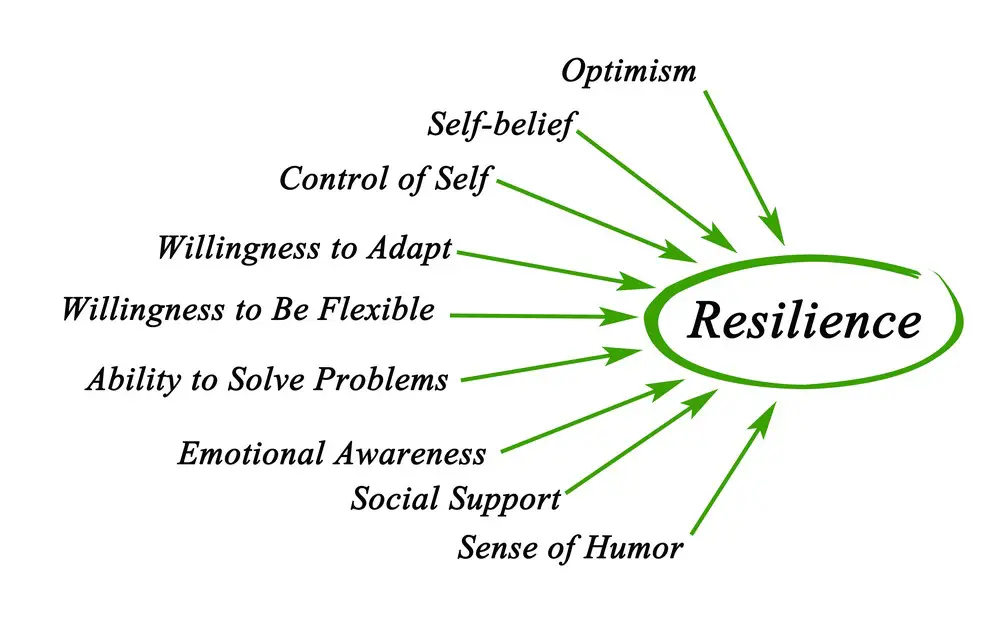 Understanding Perseverance and Resilience
Understanding Perseverance and Resilience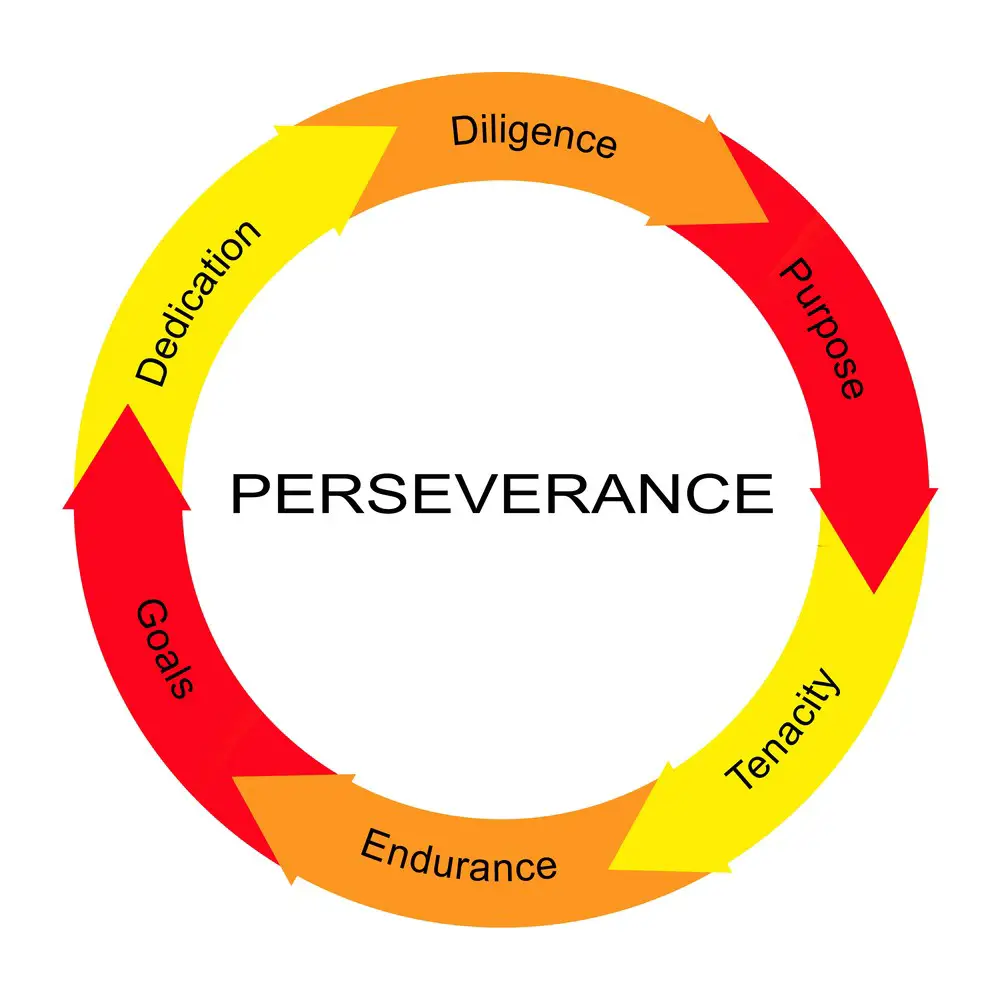 Role of Perseverance and Resilience in Overcoming Challenges
Role of Perseverance and Resilience in Overcoming Challenges The Role of Relationships
The Role of Relationships
